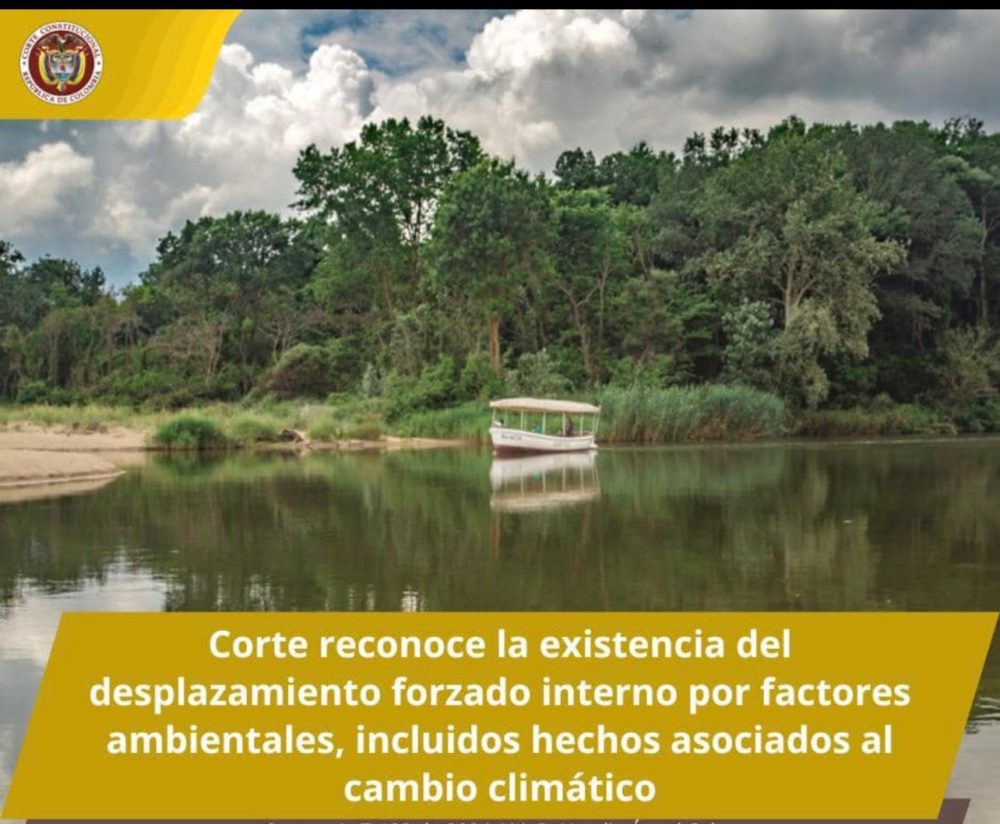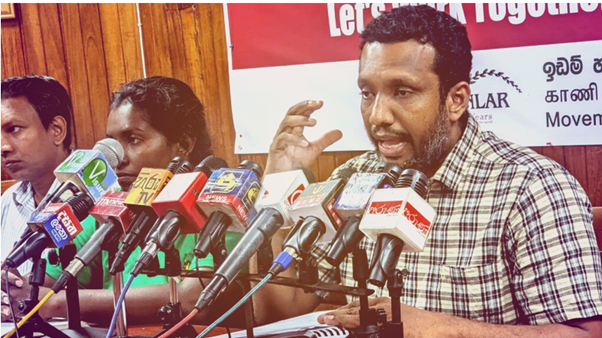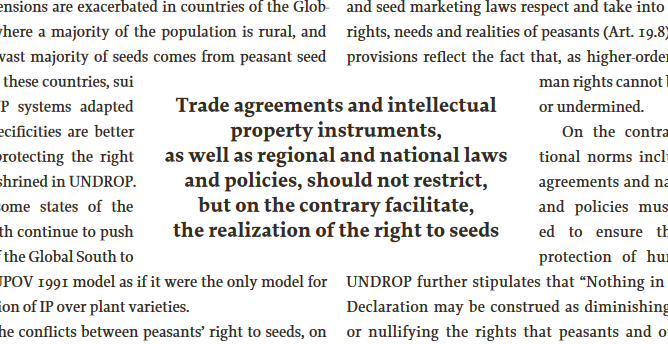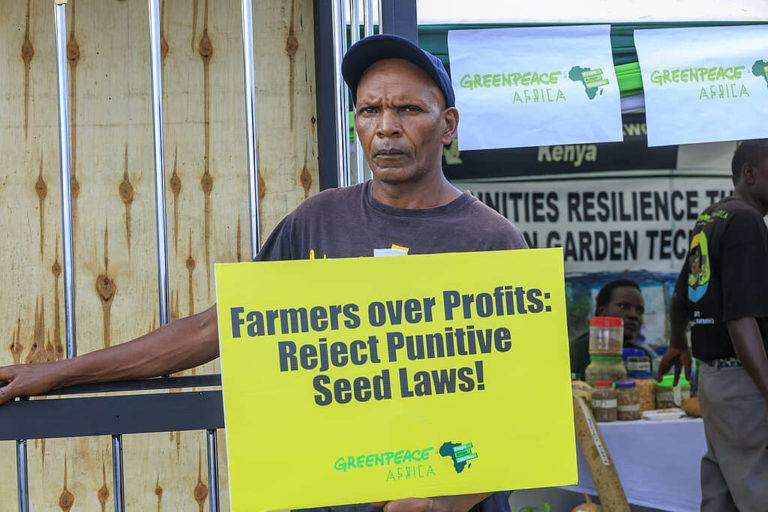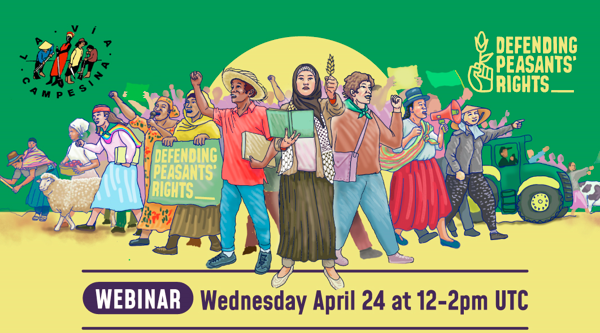Colombia: Constitutional Court Decision Protects Peasants Displaced by Natural Disasters
In a groundbreaking decision issued on April 16, 2024 (Ruling No. T-123/24), the Colombian Constitutional Court granted protection to an elderly peasant couple forced to leave their land after repeated flooding. This ruling marks a turning point in how Colombian jurisprudence addresses internal displacement linked to natural disasters. To do so, the Court relied on Article 64 of the Constitution, reformed in 2023, which enshrines specific protections for peasant communities. This reform originated from the United Nations Declaration on the Rights of Peasants (UNDROP), whose principles inspired this constitutional change.
The Colombian Constitutional Court’s decision establishes a new legal precedent that advances the process of protecting peasants’ rights at the national level and consolidates UNDROP as a key reference instrument in this area.
The case behind this ruling concerns an elderly peasant couple from Saravena, in the department of Arauca, who lived on their farm called “El Paraíso.” After multiple floods caused by the overflowing of the Bojabá River, their home became uninhabitable. Since then, they have been living precariously with their son, without being recognized as internally displaced by the authorities or receiving any assistance from the Colombian state. The Court ruled that their right to a dignified life had been violated and that the state was obligated to provide them with appropriate protection.
In reaching its decision, the Court based its reasoning on Article 64 of the Constitution, as amended in 2023. This provision now recognizes peasants as rights-bearing subjects and requires the state to grant them special protection. It highlights the importance of peasant communities in territorial development, food sovereignty, and cultural diversity. On this basis, the Court affirmed that people displaced for environmental reasons, particularly peasants, must receive enhanced protection.
Although UNDROP is not explicitly mentioned in the ruling, its influence is evident. Indeed, the Declaration served as the reference for the reform of Article 64. UNDROP recognizes specific rights for peasants, such as the right to land, a healthy environment, and political participation. It also emphasizes the need for differentiated treatment for rural populations in vulnerable situations. Regarding forced displacement, UNDROP includes specific provisions to protect peasants from this practice:
Article 12.5 (Right to Justice): States shall provide peasants and other people working in rural areas with effective mechanisms for the prevention of and redress for any action that has the aim or effect of violating their human rights, arbitrarily dispossessing them of their land and natural resources or of depriving them of their means of subsistence and integrity, and for any form of forced sedentarization or population displacement.
Article 17.4 (Right to Land): Peasants and other people working in rural areas have the right to be protected against arbitrary and unlawful displacement from their land or place of habitual residence, or from other natural resources used in their activities and necessary for the enjoyment of adequate living conditions. States shall incorporate protections against displacement into domestic legislation that are consistent with international human rights and humanitarian law. States shall prohibit arbitrary and unlawful forced eviction, the destruction of agricultural areas and the confiscation or expropriation of land and other natural resources, including as a punitive measure or as a means or method of war.
Article 24.3 (Right to Housing): States shall not, arbitrarily or unlawfully, either temporarily or permanently, remove peasants or other people working in rural areas against their will from the homes or land that they occupy without providing or affording access to appropriate forms of legal or other protection. When eviction is unavoidable, the State must provide or ensure fair and just compensation for any material or other losses.
The Court’s decision thus demonstrates that UNDROP can produce concrete effects through domestic law. By inspiring the Colombian Constitution, it has helped establish a strong legal foundation on which the Court can now rely to protect peasants. Notably, it has expanded the concept of internal displacement beyond armed conflict to include the impacts of natural disasters.
In its ruling, the Court also calls on authorities to develop a specific public policy to address environmental displacement. It stresses the importance of considering the unique realities of rural areas and peasant populations, who often face multiple forms of vulnerability.
Ultimately, Ruling T-123/24 paves the way for broader application of peasants’ rights in Colombia. Thanks to UNDROP’s influence – which has been mobilised by the Colombian peasant movement vis-à-vis their national institutions – Colombian peasants now benefit from increased recognition of their rights, particularly in the face of climate change effects and inadequate institutional responses. This jurisprudence could set an important precedent for strengthening social and environmental justice in rural areas, serving as inspiration for judicial systems in other UN member states.
For more information on peasants’ rights in Colombia, you can read our article on the recognition of peasants in the Colombian Constitution.

